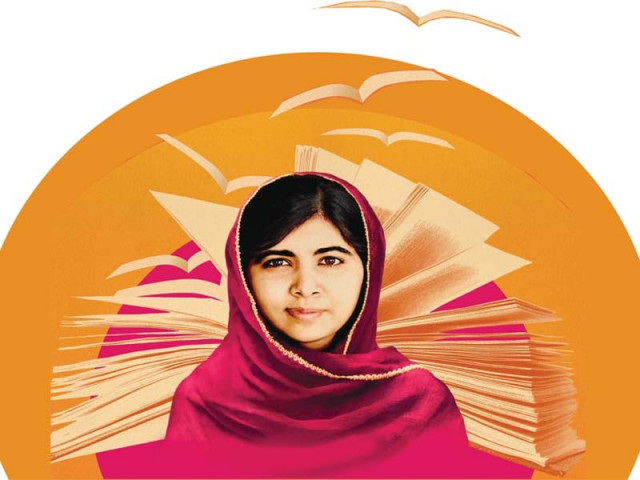Documentary review: He Named Me Malala - What’s in a name?
He Named Me Malala highlights an important subject but without the details her story deserves

He Named Me Malala highlights an important subject but without the details her story deserves.
Supporters of Malala Yousafzai are going to find the documentary shallow and lacking in new and personal information about the teenage activist. Malala’s detractors are going to view it as a revolting exercise in hagiography. The biggest disappointment, however, is going to be that of intelligent moviegoers who, after An Inconvenient Truth, expect more than a tepid, tiresome and shallow film from Davis Guggenheim.
The youngest Nobel Prize laureate ever, the confident, brave and ambitious Malala has led a remarkable life. Barely into her teens, Malala started writing a blog about her life under the Taliban, for the BBC, under the pseudonym Gul Makai. Her popularity increased as she became more and more vocal about her support for the education of girls and her disdain for the atrocities committed by the Taliban. The young hero’s brave and tireless advocacy of female education made her the subject of the 2009 New York Times documentary Class Dismissed. Nobel Laureate Desmond Tutu nominated her for the International Children’s Peace Prize in 2011.
Malala’s relentless crusade, and the attention it garnered, became a source of annoyance to the Taliban who made an attempt on her life in 2012. She survived the attack which resulted in a tremendous outpouring of support for her. From then on, Malala went on to become one of the world’s most famous and influential teenagers.
The facts of Malala’s eventful life are well known all over the world but little, if anything, is known about her personal life. The source of her strength, her core beliefs, her motivation, her inner feelings, the pain and suffering she endured after being shot, and her interpretation of Islam, remain a mystery. The real Malala has always been obscured by a carefully managed public persona. That Guggenheim’s documentary is content with sharing publicly known facts of Malala’s life, and not delving any deeper is He Named Me Malala’s biggest weakness. The story deserves more than the highly-calculated, overly rehearsed and meticulously choreographed puff piece that He Named Me Malala is and should not be.
He Named Me Malala is essentially a compilation of carefully selected events from Malala’s life, polished to a perfect shine with what seems to be a singular desire to canonise a young girl whose life, remarkable though it is, is still unfolding. The film is a failed exercise in beatification that leaves a bitter after-taste and raises a number of nagging questions and negative impressions.
The weakest segments of the documentary are the interviews conducted by an off-screen Guggenheim. The director touches on a few topics of interests — her pain and suffering, her Pakistani detractors and the immense presence of her father in her life — but quickly moves on without making any attempt to elicit honest answers. His line of questioning is, at best, half-hearted and, at worst, disrespectful. One wonders why he does not treat the young lady, he so obviously reveres, with due seriousness and respect.
The finest moments of the film show some glimpses from Malala’s life in Birmingham, which has become home since her assassination attempt. Her playful interactions with her brothers — who steal every scene they appear in — are brilliant. The Nobel Laureate doing card tricks, showing off an autographed copy of her bestselling book, I am Malala, giggling innocently while talking about handsome celebrities, worrying about fitting in with the rest of the girls in school, and arm-wrestling her younger brother are fresh and poignant.
The film does offer a provocative and unintentionally negative portrayal of Malala’s father, the controlling, territorial and smug Ziauddin Yousafzai. The odd title of the documentary sets the stage for an unwarranted amount of focus on the father who seems to not only enjoy limelight, attention and money but also controls them with fierce shrewdness. In the worst scene of the film, the director gives Malala an opportunity to refute criticisms of her father and she responds dutifully with a carefully memorised, fastidiously rehearsed and patently artificial answer. Rote and memorisation may work in school but fail when acting.
Malala’s relationship with her mother, who is living miserably in England, remains largely unexplored in the film. Malala is never asked if her public stance as an advocate of women’s rights is at odds with the life that her old-fashioned mother has been forced to lead out of Pakistan.

Published in The Express Tribune, Sunday Magazine, November 15th, 2015.



















COMMENTS
Comments are moderated and generally will be posted if they are on-topic and not abusive.
For more information, please see our Comments FAQ